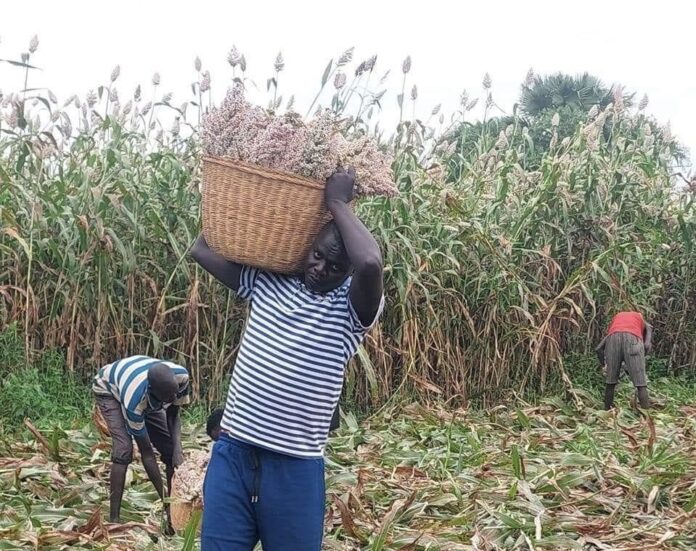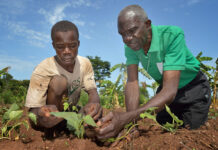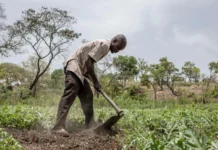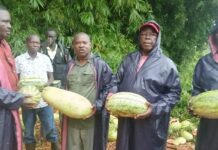In a time where many educated individuals in South Sudan find themselves in prolonged job hunts, a Master’s degree holder, Mr. Jiel Sr Akol, has chosen a different path to sustain himself and contribute to his community in Warrap State.
Mr. Akol, a resident of Aguok-Akuei, Gogrial West County, has taken up agriculture, a decision that highlights his commitment to self-reliance and nation-building.
Akol shared his thoughts with our reporter while harvesting his farm, where he expressed his belief in the value of hard work and self-sufficiency.
During an exclusive interview with Doran Media, Akol emphasized the need to earn an honest living through personal effort rather than relying on political patronage or waiting indefinitely for government jobs that unqualified individuals often fill.
“You eat what you work for, you get rich through hard work. Your wealth must have a history you can acknowledge to your kids later,” Akol wrote. He further explained that he has chosen agriculture as a sustainable way to support his family and build a future.
“I have chosen agriculture for my living rather than to be a sycophant to a fool or move from one office to another office with your academic papers, looking for a job that you can’t get for some good years.”
Akol did not shy away from criticizing the current system in South Sudan, where he believes many of the country’s offices are occupied by individuals who lack the necessary qualifications.
“Jobs that are full of empty promises from those illiterates who occupy our offices with their birth certificates,” he said, referring to the political nepotism and favoritism that often leave highly educated individuals sidelined.
His decision to engage in agriculture, rather than waiting for opportunities in urban centers or within the government, reflects a broader trend in South Sudan where young, educated individuals are increasingly turning to farming and entrepreneurship.
These alternative paths provide financial stability and contribute to food security and rural development in a country that has faced challenges in these areas due to ongoing conflict and political instability.
Akol’s story is a testament to the potential of agriculture as a viable means of livelihood in South Sudan, especially in rural areas like Warrap State, where access to formal employment is limited.
His choice serves as an inspiring message to other graduates who may be struggling to find employment: to focus on creating their opportunities rather than waiting for the system to change.
Akol expressed his broader vision for South Sudan, calling on his fellow citizens to take action and rebuild the nation through practical solutions.
“We have to fix this country wisely,” he concluded, urging others to contribute to the country’s development through hard work and innovation, rather than relying on a flawed system.
Akol’s shift from academia to agriculture highlights the resilience and resourcefulness of South Sudanese graduates. It shines a light on the untapped potential of the agricultural sector to drive growth and self-reliance in the country.
His story is a powerful reminder that, in the face of adversity, determination and hard work can pave the way for both personal success and community progress.





